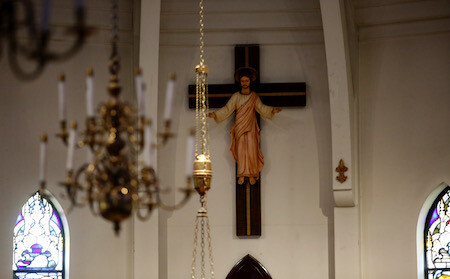All Saints

This column is an encouragement for my readers to see the film, “All Saints,” which is to be released Friday, August 25. It’s risky for me to make this encouragement, in that I have not seen the film. But I know the story it is based upon.
All Saints, a rural church in the diocese of Tennessee, was riven by discord over things happening in our church. A large proportion of its people followed their priest out of the Episcopal Church, leaving a tiny remnant with a debt-burdened building. A new priest, just out of Nashotah House and beginning a second career (he had previously been in publishing), was assigned to the church with the likely prospect of having to close it down. Then one day . . . a group of Anglican refugees from Burma (i.e., Myanmar) of the Karen tribe, people who had been doubly persecuted for their faith and their ethnicity, arrived at the church. They settled in, affecting everything. They turned some land the church owned into a farm, which actually made money. (Yours truly is amazed beyond measure at this.) They joined in common worship, creating a liturgy that was both Karen and American. And the church that was likely to close instead thrived.
The church is called All Saints, as is the movie. A few years after the Karen arrived, the priest went on from Tennessee to be a colleague of mine in New York, which is how I first learned the story. The church continues to thrive. Their experience is worth taking into consideration whenever we try to think clearly about refugees. It is also worth thought when we ponder the mission God has for us in our various congregations.
At its most basic, it is a reminder that “the company of the faithful” includes not only the people we know, but vast numbers of Christians in places and circumstances we cannot imagine. Rare, for instance, is the American who has ever heard of the Karen people. I surely hadn’t. And I marveled how they went halfway round the world and ended up at a small church in rural Tennessee. It is hard to find a better image of the meaning of “all saints.”

